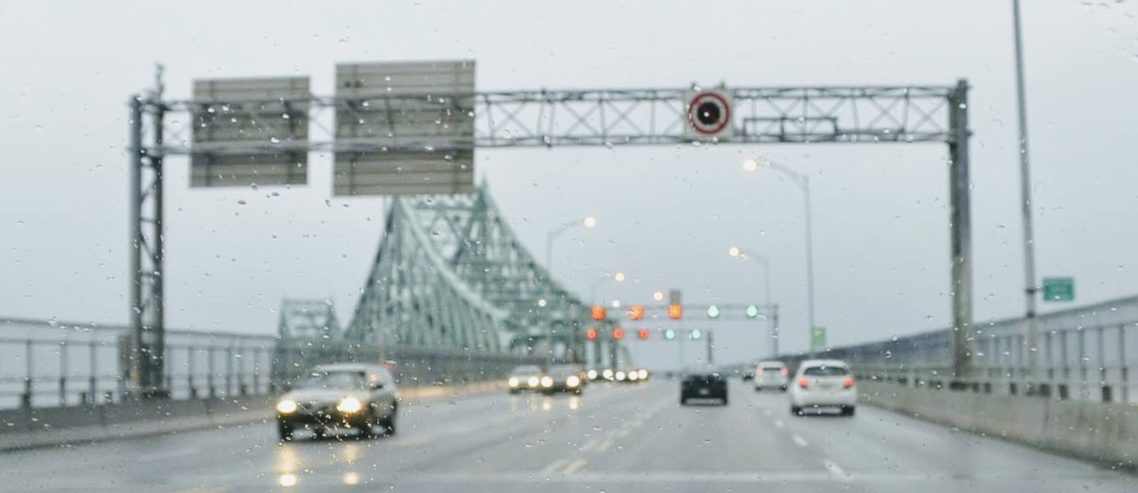Climate change is reshaping the way we think about travel in Canada
 | By Joe Kitos, VP Marketing, Poparide |
Extreme weather events triggered by climate change are altering our perspectives on domestic travel. How will these events reshape the way we plan our travels in the future?
When we choose to travel long distances, we face an important decision about our impact on climate change.
In Canada, passenger transportation is responsible for 55% of total greenhouse gas emissions from the transportation sector and greenhouse gas emissions from passenger vehicles have increased by 38% over the past two decades.
These numbers are a clear reminder that the way we choose to travel can make a big impact on our carbon footprint.
Our wake up call
In 2021, Canadians experienced extreme weather events that caused disruption on an unprecedented scale.
Heat domes triggered the highest temperatures ever recorded in Canada, forest fires peaked much earlier than usual and atmospheric rivers caused life threatening flooding and washouts in the Pacific and Atlantic regions.
These catastrophic events gave Canadians a glimpse into our climate’s future and affected everyone’s lives in some way.
For those of us who work at Poparide, these events gave us pause for thought. It became clear that we needed to focus greater attention on spreading the word about the environmental benefits of sharing rides and filling empty seats in cars when travelling between cities.
Thinking carefully about travel
In November 2021, extreme rains brought devastating floods and landslides to British Columbia. It was one of the only times since the completion of the Canadian Pacific Railroad in 1885 that every single Canadian land route to the Pacific had been cut, including both major rail lines.
The Trans Mountain pipeline and critical gas lines serving the City of Vancouver were also forced to close. In response, the BC government announced limits on gas purchases for non-essential vehicles and travel restrictions along damaged highways.
This forced BC residents to think more carefully about how and when they travel. While many people delayed travel plans, others who needed to travel were faced with changing road and weather conditions that made planning their trips more complicated.
For the first time, many of us started to think differently about how climate change will impact our ability to get around in future.
The right time to travel
As atmospheric rivers arrived in BC, orders related to non-essential travel on several major routes remained in place. Some routes were initially closed and then reopened intermittently depending upon conditions, while several stretches along these routes were reserved for essential travel only with fines of as much as $230 for those caught breaking the rules.
Travellers who were previously accustomed to moving freely at any time were faced with important decisions surrounding the necessity of travel. Some of our members reached out with questions such as, “Can I post on Poparide if my trip isn’t essential?” and “Am I allowed to travel?”
All travellers had serious decisions to make. Each driver and passenger needed to ensure that they were driving at the right time and for the right reasons or face potentially serious consequences.
Reducing chaos during evacuations
During the summer of 2021, record high temperatures caused severe wildfires across British Columbia, Manitoba, Saskatchewan and Ontario, triggering evacuation orders and causing smoke to drift thousands of kilometres away.
In light of these events, jurisdictions across the country have been reviewing their evacuation strategies to ensure the safety of their residents. In situations where sufficient advance notice to evacuate can be provided, some jurisdictions are now considering innovative transportation solutions—including carpooling—to reduce traffic congestion and move people efficiently.
The Resort Municipality of Whistler and the District of Squamish have endorsed plans to broadcast information promoting Poparide in public information messaging prior to and during an evacuation, depending upon the urgency of the situation. People would be encouraged to offer a ride to friends or neighbours that do not have a vehicle or to register their empty seats on our carpooling platform.
This proactive approach could help reduce congestion and demand for fuel while supporting people in communities without personal transportation during a time of crisis. It could also help reduce the number of buses needed to transport people without vehicles.
The future of travel in uncertain times
Extreme weather triggered by climate change has had a profound impact on Canadians and people all around the world over the past year.
For many of us, this has changed the way we think about travelling. Not only have these events made us more conscious of the impact of our carbon emissions, we are now more likely to think critically about the safety, timing and practicality of travelling during uncertain times and the importance of supporting one another in our communities during times of crisis.

How have recent climate related weather events affected your perspective on travel? Share your thoughts with us in the comments below.
